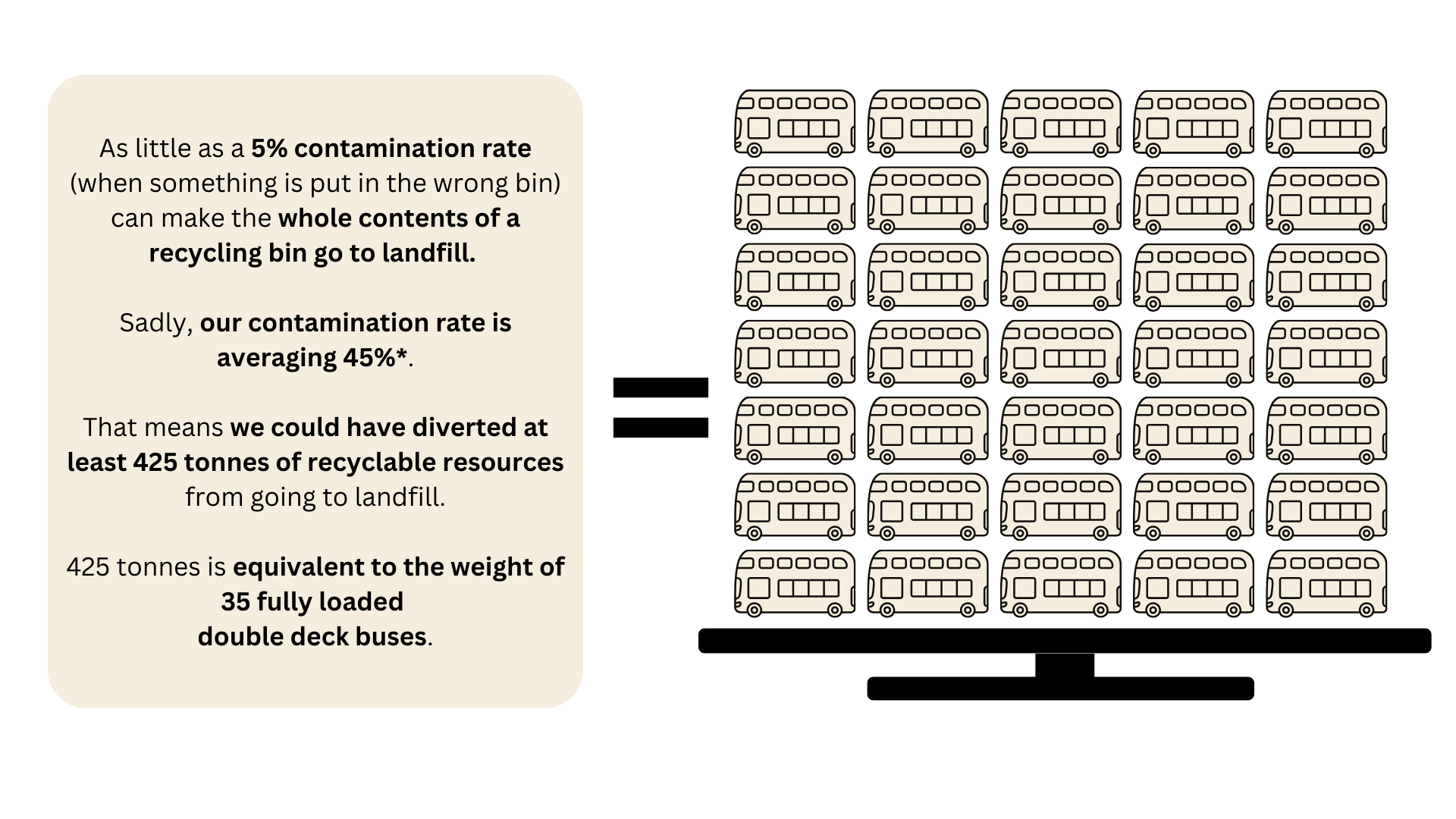
First published: 12 Feb 2025; Updated: 25 August 2025
25 August 2025
ANU Sport is the first building to receive the new Be Bin Smart waste streams following our pilot in Marie Reay. The new streams will help us to reduce contamination, recover more resources and send less to landfill, and they will be rolling out to more buildings soon. If you’d like to see the new bins in your building, reach out to your area manager or building custodian, who can contact the ANU Green team and work together to schedule the rollout.
In the meantime:
- Check out our resources and learn about our pilot
- Cut down on waste by using reusable cups, bottles, cutlery and containers
- Get recognised for your impact through the ANU Green Awards and join the “Zero Waste 101: How to reduce your waste and live more sustainably” Challenge on the One Small Step x ANU platform. Awards are running until 31 October.
12 February 2025
ANU Green has installed a new resource recovery and waste pilot program in the Marie Reay Teaching Centre with five distinct bins to divert more recycling material from landfill. Alongside the new bins are new signage to help users can feel confident about where to put their waste.
ANU is committed to reducing the amount of waste that is sent to landfill. In 2024, 960 tonnes of landfill waste was collected from ANU campus. This compared to 144 tonnes of mixed recycling and 136.5 tonnes of paper and cardboard. When items that cannot be recycled are misplaced into recycling bins, it can cause contamination at the processing plant. If the contamination rate hits the threshold – which is as low as 5% - an entire ‘batch’ of waste is sent to landfill.
Each year, ANU hosts waste audits with its waste management company. In 2024, four buildings were targeted, and waste from a 24-hour period was sorted and waste composition analysed. The results of the bin audits found that:
- 40.8% of the contents of the landfill bins could have been diverted - 23% was food waste, 11.3%% was mixed recycling and 7% was paper and cardboard.
44.2% of the contents of the mixed recycling bin was either waste that should have gone to landfill (22.6%) or could be disposed in a specialised recycling bin - 14.6% was 10 cent refundable containers and 15.4% was paper and cardboard.

Having more clearly differentiated resource recovery and waste streams can make sorting recyclable material from waste easier and reduce our environmental impact. To increase their effectiveness, educational programs and clear signage are required to help users and cleaning staff feel confident about what waste goes in which bin.
The new setup in Marie Reay Teaching Centre is a trial to determine how effective this pilot is for diverting recyclable resources from landfill at ANU. On each level of the building there are five-bin Be Bin Smart walls. We have replaced the yellow bin with a purple bin for 10 cent recycling containers and a white bin for other recycling. We have added a maroon bin for food waste and a blue bin for paper and cardboard, and a red bin for landfill remains.

Be bin smart when you are visiting the Marie Reay Teaching Centre. By participating in this pilot and spreading the word you are helping to create a more sustainable campus and community.
Note: The Marie Reay Teaching Centre Be Bin Smart walls are part of a pilot project led by Campus Environment to support sustainable action across ANU. Results will be evaluated and learning shared with the ANU community to inform future action.
Read more about our circular economy, waste and resource recovery projects.
Get recognised for your impact!
The ANU Green Awards are running now until 31 October 2025, inviting both staff and students to earn eco-points through the One Small Step × ANU platform—whether solo or in teams—to achieve Bronze, Silver, Gold or even Platinum recognition, complete with prizes and campus-wide recognition. One great way to start is with the “Zero Waste 101: How to Reduce Your Waste and Live More Sustainably” Challenge. This challenge offers practical, everyday steps to swap single-use plastics for reusable alternatives and reduce your household waste. Sign up, complete the challenge, submit your evidence, and watch your green impact (and points!) grow.
ANU is working to reduce our environmental impact across all our emissions sources including energy, travel, waste and more. Looking for other ways to help support this mission? Join the One Small Step app or the ANU Green Network. The app speaks directly to the ANU community with easy and fun ways to act more sustainably, and the Network is an online resource for ANU staff and students to access and share sustainability activities and advice at the University.